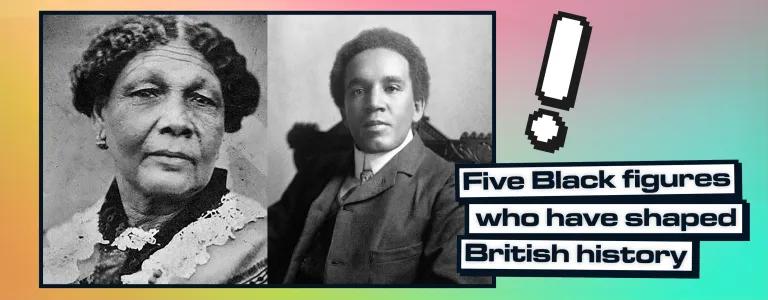
Black Figures Who Have Shaped British History
It’s Black History Month, and this year’s theme is Reclaiming Narratives; making sure Black voices are heard, experiences acknowledged, and contributions celebrated. So, we’re taking a look at some of the important Black figures who have shaped British history as we know it.
6 min read
Ignatius Sancho
Ignatius was born on a slave ship in the middle of the Atlantic Ocean. By only two years old, he was an orphan, and was taken to London where he was presented as a gift to three sisters who lived in Greenwich.
Ignatius became friends with their neighbour, the Duke of Montagu, who quickly became impressed with his intelligence and taught him to read. Ignatius soon ran away from his home to live and work for the Duke.
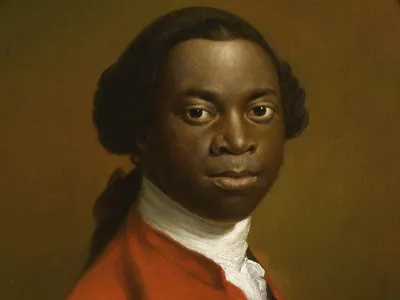
The education he received at Montagu House led him to become a respected composer, actor, and writer. In fact, a 2023 study by the University of Oxford has uncovered new letters written by Sancho, shedding light on his involvement in early abolitionist networks. These findings have led to a reassessment of Sancho's role in shaping public opinion on slavery.
His writings continue to be studied in universities worldwide, offering valuable insights into the Black experience in 18th-century Britain. The Ignatius Sancho Society, founded in 2020, promotes research into his life and works and awards annual scholarships to Black British students studying literature and history.
Mary Seacole
Mary was half-Jamaican, half-Scottish, and a woman of many talents. She was a nurse, a travelling saleswoman, a hotelier and restaurateur, a gold prospector, a military heroine, a best-selling author, and a celebrity with friends in the highest of places!
In 1854, Mary asked the War Office to be sent to Crimea as an army nurse, where there were poor medical facilities for wounded soldiers. She was refused. But that didn’t stop her! She funded her own trip and established the British Hotel to provide 'a mess-table and comfortable quarters for sick and convalescent officers'.
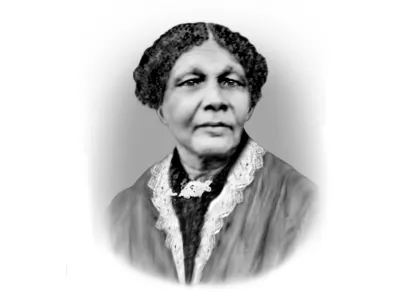
When Mary returned to England after the war, she was famous. She wrote a best-selling autobiography, The Wonderful Adventures of Mrs Seacole in Many Lands, and enjoyed being friends with soldiers, officers, aristocrats and even members of the royal family!
In 2016 a statue of Mary was erected at St. Thomas' Hospital in London and continues to inspire discussions about representation in public art and the recognition of diverse contributions to British history.
In 2022, the Mary Seacole Trust launched a nationwide educational program, introducing Mary's story to primary schools across the UK. This initiative has significantly increased awareness of her contributions among young people in the country!
Samuel Coleridge-Taylor
Samuel was an English composer, conductor, and political activist once hailed by 20th-century critics as a “musical genius”.
At just five years old, Samuel began playing the violin and ten years later he was admitted to the Royal College of Music in London.
In 1896 he became conductor of an amateur orchestra in Croydon and began teaching, guest-conducting, and judging at music festivals around the country.
His classical compositions were heavily influenced by his heritage and traditional African music, making him one of the most progressive writers of his time.
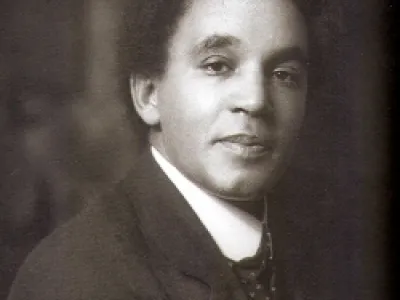
This helped Samuel achieve recognition around the world, especially in America. In 1904, he was even invited by President Theodore Roosevelt to visit the White House, which was a bold statement and a positive step forward for America at the time.
The Samuel Coleridge-Taylor Foundation, established in 2018, has been instrumental in reviving interest in his work. In 2023, the Royal Philharmonic Orchestra performed a series of his lesser-known compositions, leading to new recordings and increased scholarly attention.
Diane Abbott
Diane was born to Jamaican immigrants in London in 1953. After studying history at college, she decided to try and make history herself. And she succeeded! In 1987 she became the country’s first Black woman to become an MP, she’s the longest serving Black MP in the House of Commons and was the Shadow Home Secretary from 2016 to 2020!
Diane has served on a number of parliamentary committees on social and international issues. For most of the 1990s she also served on the Treasury Select Committee of the House of Commons, and she went on to serve on the Foreign Affairs Select Committee.
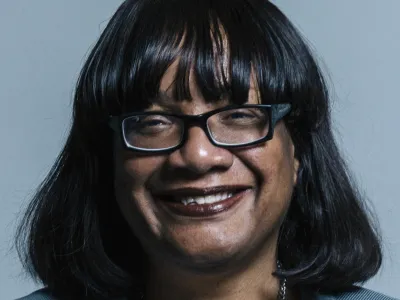
And if that wasn’t enough, she also chairs the All Party Parliamentary British-Caribbean Group and the All Party Sickle Cell and Thalassemia Group. And, she’s the founder of the London Schools and the Black Child initiative, which aims to raise educational achievement levels amongst Black children.
In 2022, The Diane Abbott Foundation was launched, and provides mentorship and support to young Black women entering politics and public service.
Her ongoing commentary on issues of race and policing remains influential in shaping public discourse. A 2023 parliamentary report on the impact of COVID-19 on people from ethnically diverse backgrounds, which Diane contributed to, has led to policy changes in healthcare provision and community support.
Walter Tull
Walter was a professional footballer and soldier during World War One.
As a child living in an orphanage, Walter quickly found a love of sports, but specifically in football. He became so good in fact that he ended up playing professionally for Tottenham Hotspur!
However, when WW1 started, all professional football was suspended, so Walter and many other footballers decided to join the Football Battalion – a main fighting unit with around 1000 men.
He was quickly promoted to sergeant in the Football Battalion, and then, in 1916 began training as an Officer. At the time, only a white, British-born person could be an officer, but because Walter was so good at his sergeant position, he became the exception to the rule and was allowed to become an officer.
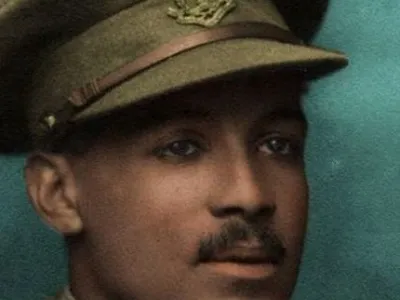
He went on to successfully lead soldiers over a river in Italy and led an attack on German trenches.
In 2019, The Walter Tull Scholarship was established by the Professional Footballers' Association. The scholarship supports young Black players pursuing education alongside their football careers.
And, in 2021, a previously unknown diary of one of Walter's fellow officers was discovered, providing new insights into the challenges he faced and the respect he commanded among his peers. This finding has led to a reassessment of racial attitudes in the British Army during WWI.
Who do you look up to?
Do you have Black heroes from history? Who do you think has created a long lasting legacy and impact? Let us know over on our Insta @NCS and help inspire others to do some research and get to know the incredible Black figures throughout history!
READ MORE:
Head back to the hub for more ways to be epic, live life, do good and go party.

